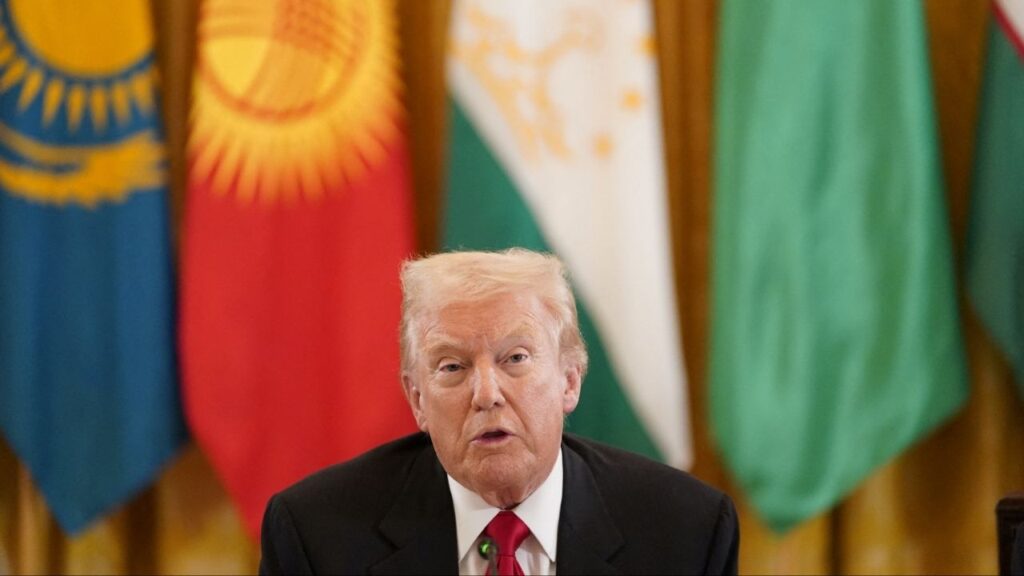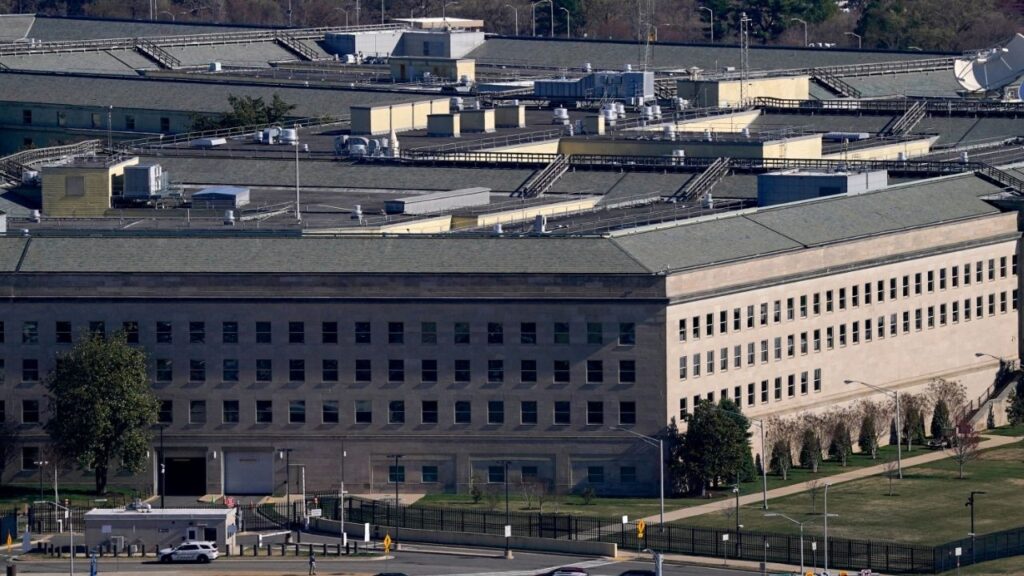A man looks at an electronic board displaying sector performances related to Nikkei index outside a brokerage in Tokyo, Japan, May 13, 2025. (Reuters File)

- Global stocks fell and oil surged after Israel struck Iran, fueling market volatility and investor rush into gold and dollars.
- Brent crude spiked up to 14%, gold neared record highs, and stocks tumbled as geopolitical risks rattled global markets.
- Traders fled risk assets amid Mideast conflict; inflation fears rose with oil, complicating Fed outlook and boosting demand for Treasuries.
Share
|
Getting your Trinity Audio player ready...
|
(Reuters) -World stock markets fell on Friday, and oil prices surged, as Israel launched military strikes on Iran, sparking inflows into safe havens such as gold and the dollar.
An escalation in the Middle East – a major oil-producing region – adds uncertainty to financial markets at a time of heightened pressure on the global economy from U.S. President Donald Trump’s unpredictable trade policies.
Early on Friday, Trump urged Iran to make a deal over its nuclear program, saying there was still time for the country to prevent further conflict with Israel.
Brent crude oil prices were last up 7.25% at $74.39 per barrel, having jumped as much as 14% during Asian trading hours. They were set for their biggest one-day jump since 2022, when energy costs spiked after Russia’s invasion of Ukraine. U.S. oil futures rose 7.57% to around $73.
Gold, a safe haven in times of global uncertainty, rose 1.4% to $3,432 per ounce, bringing it close to the record high of $3,500.05 from April.
The rush to safety was matched by a dash out of risk assets. The Dow Jones Industrial Average fell 1.65%, the S&P 500 dropped 0.86%, and the Nasdaq Composite lost 0.9%. European shares dropped 0.9%, briefly hitting its lowest level in three weeks, and in Asia, major bourses in Japan, South Korea, and Hong Kong fell over 1% each.
“The re-emergence of major conflict in the Middle East should raise geopolitical stress, including sharply higher oil prices,” Sameer Samana, head of global equities and real assets at Wells Fargo Investment Institute, said in an email. Samana added, though, that the conflict should represent a buying opportunity for long-term investors, including in U.S. large-cap stocks and commodities.
Israel said it had struck Iran’s nuclear facilities and missile factories and killed a swathe of military commanders in what could be a prolonged operation to prevent Tehran from building an atomic weapon.
Trump suggested Iran had brought the attack on itself by resisting U.S. demands in talks to restrict its nuclear program, and urged it to make a deal, “with the next already planned attacks being even more brutal.”
Washington said it had no part in the operation, however.
Two-Way Pull for Bonds
U.S. Treasury yields rose on Friday, as markets absorbed a sudden shock to commodity and stock prices, reversing some of the declines after four days mainly in the red.
U.S. 10-year Treasury yields were last up 7.9 basis points at 4.436%, having touched a one-month low of 4.31%. Bond yields move inversely to prices.
“This is a flight-to-safety event. But markets are struggling a bit, and in the fixed income space you have an oil-price shock that is inflationary, and so you should see markets expecting an even more hawkish Fed,” said James Rossiter, head of global macro strategy at TD Securities.
“On the other hand, you have the flight to safety, which should push bond yields lower.”
Germany’s 10-year bond yield touched its lowest level since early March at around 2.42%, before also inching higher.
Some traders were attracted to the dollar as a haven, with the dollar index up 0.5% to 98.16, retracing most of Thursday’s sizeable decline.
The Swiss franc briefly touched its strongest level against the dollar since April 21, before trading 0.11% lower at around 0.811 per dollar.
Another safe haven, the Japanese yen, fell 0.37% to 144.05 per dollar, giving up earlier gains of 0.3%.
The euro was down 0.3% at $1.15, after rising on Thursday to the highest since October 2021.
“Clearly if the conflict in the Middle East is short term in nature, the weakness in USD will likely continue,” Arun Bharath, Chief Investment Officer at Bel Air Investment Advisors, said in an email. If not, he added, the fundamental factors that suggest further weakness for the dollar might be offset by a geopolitical premium for it.
—
(Reporting by Lawrence Delevingne in Boston and Dhara Ranasinghe in London; additional reporting by Kevin Buckland in Tokyo; Editing by Toby Chopra, Rod Nickel and Sandra Maler)
RELATED TOPICS:
Categories

Kazakhstan to Join Abraham Accords, Trump Says

Who Will Replace Pelosi in Congress?


















